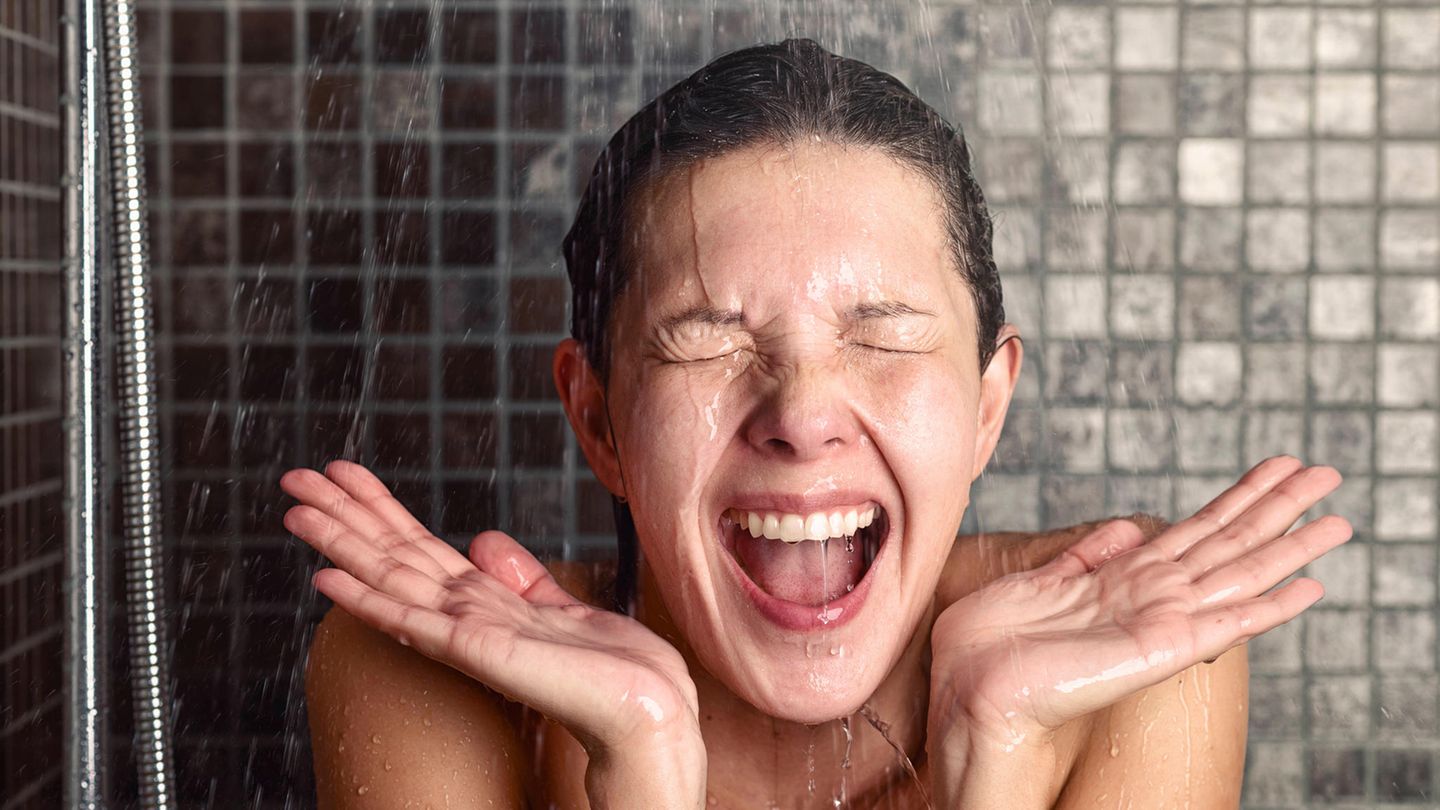Want to cool down? A cold shower can feel like a relief – and it’s good for your health anyway. Right?
When the sun burns your skin, sweat pours out of your pores and your brain is boiling, your body is crying out for cooling down. For some, a cold drink is enough to provide relief, while others go for more drastic measures: (ice) cold showers. This is not a good idea. Cold showers are not healthy per se. A fact check.
Is it wise to take cold showers when it is hot?
A cold shower in hot weather may be refreshing for a moment, but the effect does not last long. After the short cooling down, the body quickly heats up again. When it is cold, the body contracts sweat pores and blood vessels to counteract the drop in temperature. After a cold shower, the body tries to quickly return to its core temperature. The increased energy expenditure required causes us to sweat even more. And the extreme temperature difference can also put a strain on the circulatory system.
Are cold showerers better hardened than warm showerers?
The claim that cold showers are good for the immune system and make us less susceptible to getting sick is a claim that is spread quite naturally. However, it has not yet been conclusively proven that they actually strengthen the immune system. Although studies have been carried out on the subject, they were not representative. Among other things, the results of an older study by the University of Jena showed that regular cold chest showers could increase the number of immune-relevant cells, at least in the short term. However, this does not prove whether this helps to make people more resistant to colds.
For example, a research team from the Netherlands found that people who regularly took cold showers reported being sick less often. However, the study participants showed symptoms of illness for just as long as those who continued to take warm showers. It is therefore suspected that cold showers do not prevent people from getting sick, but could lessen the course of the illness. It is therefore not proven whether cold showers actually have an effect on how often and for how long we catch colds – but it is not ruled out either.
Do cold showers have a revitalizing effect?
That’s true, but it’s not all positive. The body actually reacts to the sudden cold with stress. This releases noradrenaline, which increases the pulse and blood pressure. This puts the body in a kind of alert position, so to speak. A natural reaction to stress that prepares it for a possible impending fight or flight. An effect that can be perceived as invigorating, sometimes even euphoric. However, researchers from the Czech Republic have observed that a habituation effect sets in. Those who regularly took cold showers – in the study this meant at least three cold showers per week – became less sensitive to the cold over time and reacted less stressed. The vitalizing effect therefore also diminished. But this study is also too small to draw reliable scientific conclusions from it.
Does cold showering help with regeneration?
That’s true. An analysis of several studies showed that cold showers can actually help with muscle soreness and other symptoms after exercise. A bath in 15 degree cold water was shown to be an effective means of regeneration – but not as effective as massages or stretching.
Do regular cold showers relieve depression?
The data is thin and not very reliable, but there are indications that cold showers can be beneficial to mental health. The cold stimuli activate areas of the brain that are responsible for feelings of happiness and sympathy, as an older study from the University of Virginia showed. Experts assume that overcoming one’s “inner demons”, leaving one’s comfort zone and the necessary discipline can also contribute to improving mental health.
Can cold showers make you sick?
Anyone who has ever stood in a mountain stream knows how painful it can be. Especially for “beginners”, cold can initially be very unpleasant. In the course of a study, participants reported symptoms such as dizziness, cramps and itching. The most common side effect (13 percent) was persistent cold hands and feet. Cases of serious consequences in healthy people have not yet been reported. But cold stimuli can be dangerous. Caution is also advised when taking ice baths. Cold can worsen existing illnesses and increases the risk of cardiovascular and respiratory diseases. The likelihood of suffering a heart attack or stroke increases. Older people and people with pre-existing health problems, especially those with cardiovascular diseases, should only take cold showers after consulting a doctor.
More texts from the series “Good to know”
Sources: , , , , , ,
Source: Stern
I’m Caroline, a journalist and author for 24 Hours Worlds. I specialize in health-related news and stories, bringing real-world impact to readers across the globe. With my experience in journalism and writing in both print and online formats, I strive to provide reliable information that resonates with audiences from all walks of life.




